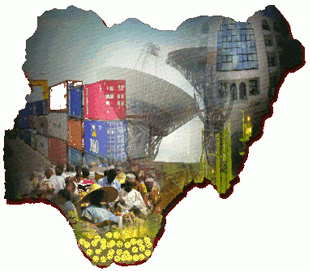
Following the National Bureau of Statistics (NBS) estimates of Nigeria’s second quarter Q2 Gross Domestic Product (GDP), which grew by 5.01 per cent, economists across the country have lauded the improvement.
NBS had reported that Nigeria’s GDP grew by 5.01 per cent (year-on-year) in real terms, resulting in the third consecutive quarter of growth since last year’s slowdown. The strongest real GDP growth the economy has recorded since Q4 2014.
Although, iBrandTV check on the reality of the nation’s economy, shows that things are not in shape as Nigerians are still facing serious hard times in survival.
For instance, prices of commodities across the country skyrocketed, forcing Nigerians into untold hardship.
Experts speaks
However, experts who spoke to iBrandTV in separate interviews urged the Federal Government to put measures in place to make the growth inclusive.
According to Prof Ndubisi Nwokoma, Director, Centre for Economic Policy Analysis and Research (CEPAR), University of Lagos, said on a comparative basis, the GDP growth figures meant the economy had opened up from the COVID-19 induced dislocations.
“Improvements in services were expected in view of the greater resort to ICT-induced service enhancement in the economy.
“However, the prevailing insecurity challenges in the country is a serious drag to output growth. If insecurity challenges are confronted headlong, economic growth in the coming quarters will be enhanced,” Nwokoma said.
Sheriffdeen Tella, Professor of Economics at the Olabisi Onabanjo University Ago-Iwoye, Ogun, said the GDP figures represented good news, if the figures were true.
“A GDP growth of 5.01 per cent is a strong indicator for improved welfare. But the reality on ground does not support such growth rates.
“However, the sub-sectors identified for the growth, except, transportation, cannot impact seriously on employment and income whereas agriculture and industrial sectors that would impact on these recorded slow and negative growth respectively.
“Actually, the fact is that the growth witness emanated largely from oil sector with improvement in oil prices since the beginning of the year.
“The government still needs to address issue of security for agriculture and industries to pick up,” Tella said.
Hassan Oaikhenan, Professor of Economics at the University of Benin, Benin-City, is worried that the GDP growth data do not reflect the reality on ground.
He urged government to come up with pragmatic and decisive policies that are geared toward sourcing raw materials for the manufacturing sector from within.
He said the agricultural sector needed to be harnessed to provide the raw materials needed by the industrial sector.
“There is need for pragmatic and actionable policy actions to create linkage between the industrial and agricultural sectors,” he said
